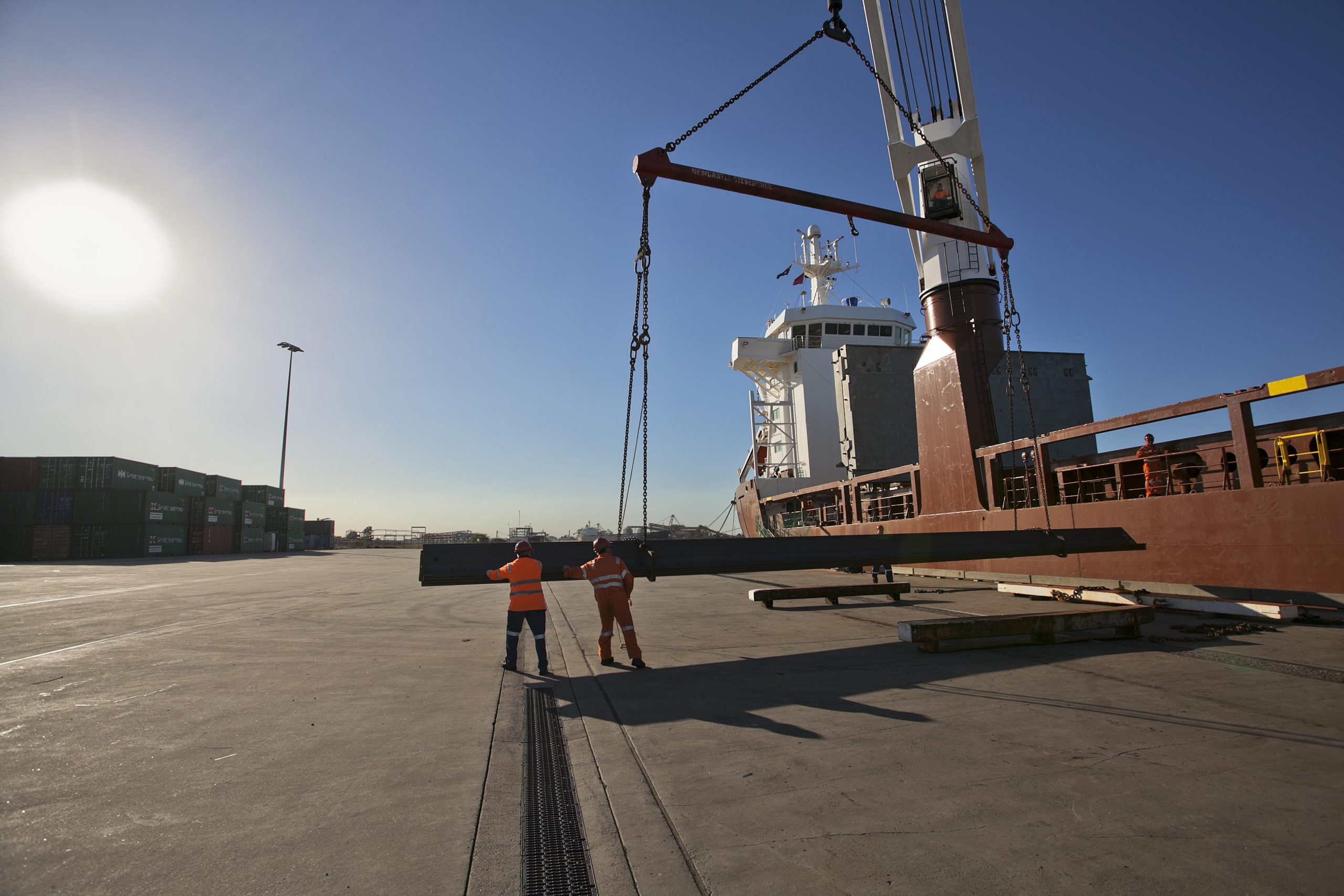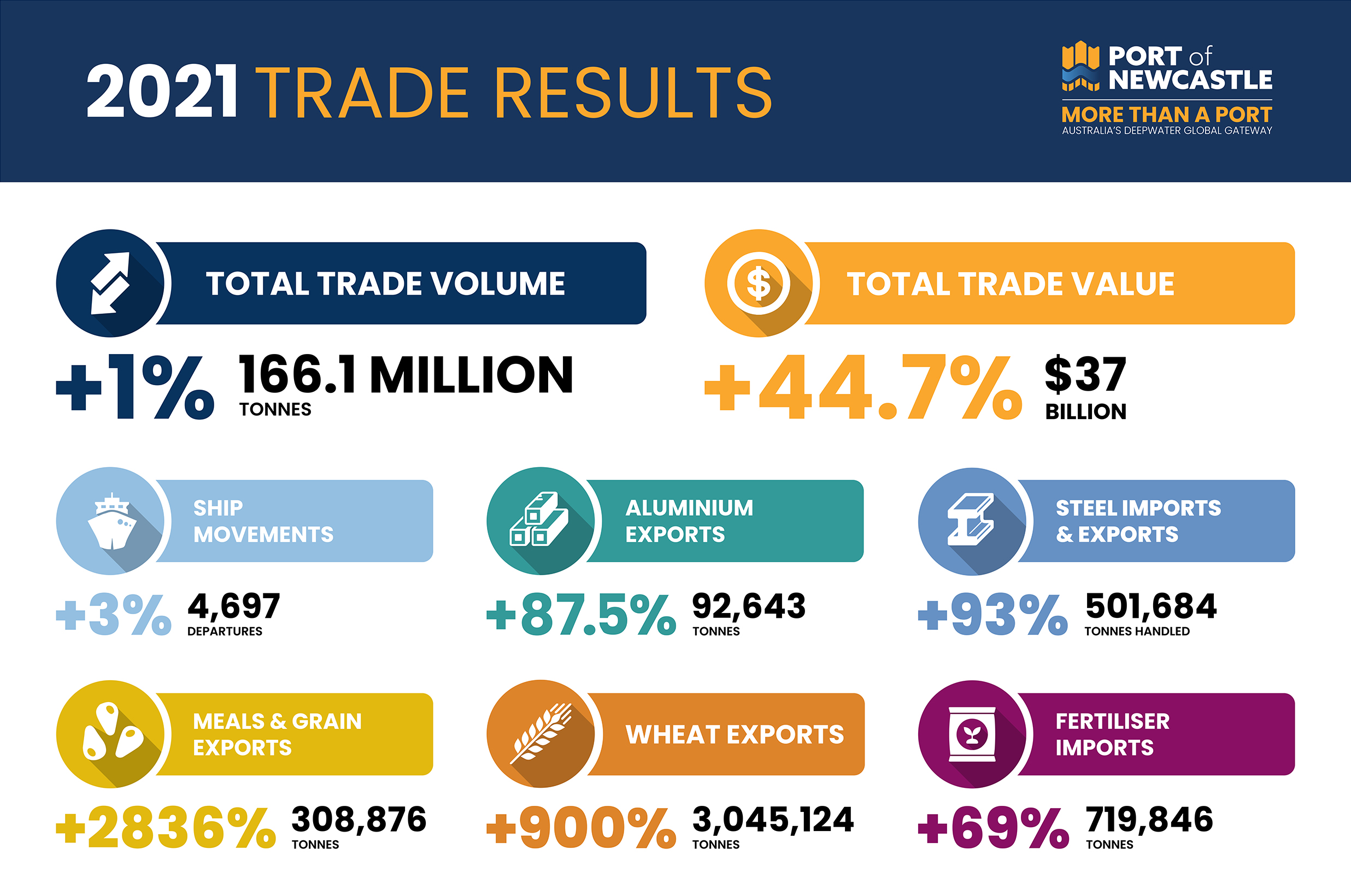

New figures released today reveal that Port of Newcastle’s import/export volume performance of 2020 strengthened in 2021, despite global supply chain challenges and the continuing impacts of the pandemic.
Acting CEO, Nick Livesey, said the results indicates the strength and capability of Australia’s deepwater global gateway has facilitated approximately $37 billion to the national economy during 2021.
“In 2021, Port of Newcastle handled 4697 ship movements and 166.1 million tonnes of cargo including coal, dry bulk, bulk liquids, roll-on roll-off cargo, general and project cargoes and containers.”
“This represents an increase of 1.6Mt of overall trade compared with 2020, with an extra 3 per cent of vessels visiting the port in 2021,” Mr Livesey said.
2021 trade saw records held for almost a quarter of a century tumble across a number of key export commodities.
“Many people don’t realise that the Port handles 25 different cargoes through its deepwater global gateway, only one of which is coal. We have seen increased demand for diversified trades across the board, including wheat, fertiliser, steel, cement, fuels, project cargo and aluminium” said Matthew Swan, the Port’s Acting Executive Manager Business Development.
“Achieving highest diversified trade volumes recorded since 1997, last year saw fertiliser imports grow 69 per cent year on year in 2021, with over 720,000 tonnes exported through the Port. After years of long drought impacting supply, wheat exports also surged, up 900 per cent on 2020 with over 3 million tonnes of the commodity travelling through the Port.”

Global demand for Australian coal dipped slightly, but overall remained resilient and consistent with records of the past five years despite China-imposed trade restrictions, and the record thermal coal spot price.
“Mass tonnes of aluminium exported, predominantly to Korea and Japan, increased to its highest annual export rate in five years, with over 90,000 metric tonnes passing through the Port, valued at $295 million. Strong demand from NSW infrastructure and construction sectors supported steel trade also reaching its highest import/export levels since the closure of BHP Steelworks over two decades ago,” Mr Swan said.
The latest Port trade data for 2021 comes as the Port prepares to take significant milestone steps in 2022 on its continued diversification journey.
“With a deepwater shipping channel operating at 50% of its capacity, significant Port land available and enviable access to national rail and road infrastructure, in 2022 Port of Newcastle will see a range of projects and initiatives come to fruition that will support the further diversification of our trade.
“We are committed to the continued growth of our region’s critical asset, which includes a more sustainable, and environmentally and socially responsible future,” Mr Livesey said.
“Port of Newcastle is working to realise projects now that will drive the diversification of our business and the Hunter Region over the next 50 years and beyond through a three-pronged approach; our Environment Social and Governance Strategy and sustainability initiatives, the Newcastle Multi-Purpose Deepwater Container Terminal development and our Port of Newcastle Green Hydrogen Hub Project in partnership with Macquarie’s Green investment Group and the Australian Renewable Energy Agency.”
For more information on the Port’s 2021 trade achievements, visit our Facts and Figures page.
